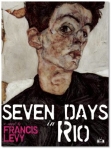Rabbi Jeff Marker's synopsis of Arthur Green's talk on Abraham Joshua Heschel and Hasidism.
"For Heschel the most significant mitzvot are
Feeding the poor, ending war, marching with MLK.
These are spiritual acts, not just political.
These are the acts for which we were created.
"Heschel’s God was very personal, but we must do the work for God."
Originally posted by at
Arthur Green on Abraham Joshua Heschel and HasidismOn Thursday evening I went to the Abraham Joshua Heschel School and heard a lecture by Arthur Green titled “What Heschel Learned From Hasidism.” Green was a close student of Heschel when he was a rabbinical student at the Jewish Theological Seminary in the 1960s. It was a brilliant talk, though I thought I would share what I managed to take down and remember.
First of all, Green said, Heschel would have hated the title of the talk. He did not like divisions in Jewish life. He bridged worlds and was critical of all of them. He wrote about many of them.
Heschel was a living link to the lost world of Jewish Europe. In his first real appearance on the public stage in Americal, at YIVO in 1944, he spoke about that lost world. He later expanded this into his book “The Earth is the Lord’s.” Around the same time, in 1943-44, he reclaimed his middle name. Before that he was known, and wrote as, Abraham Heschel. After this he was Abraham Joshua Heschel. This was the name of his famous great great grandfather and reflected his Hassidic identity. His family was from the Ukrainian school of hasidism which was a kind of peasant hasidism. His father was an immigrant to Warsaw which was generally dominated by the Ger/Kutsk school, which was more rational and skeptical of miracle workers and similar stories. There were no yeshivas reflecting his heritage, and his early education was under the influence of Ger. Heschel later said he lived between these two worlds, Medzibush and Kutsk.
Heschel grew to see the Hasidic world as “small minded” and wanted a secular education. It would have been a scandal for him, scion of a Hasidic dynasty, to go to a secular gymnasium in Warsaw. His tutor arranged for him to attend a gymnasium in Vilna, a center of the anti-Hasidic misnagdim. After a year he enrolled in university in Berlin. He also wrote poetry. In time he learned to speak in Biblical language which was accessible to both Jews and Chrisitians.
So, what did Heschel learn from Hasidism? Green says five things, and he will especially expand on the fifth.
A sense of wonder - “The whole world is full of God’s glory!”
There is nothing you can prove
Religious truth is about testifying, not proving. His book “The Sabbath” is an expansion on ideas in
“Sfas Emes,” a book by an earlier Gerer rebbe.
He understood the need for charismatic religious figures, but saw corruption in the Hasidic world.
So he went back to the prophets as his authentic “rebbes.”
(Buber, the outsider, could romanticize Hasidic leaders, not Heschel)
His lecture “Did Maimonedes think he had attained prophesy?” actually applies to him also.
He did become a prophetic figure, and saw it in Martin Luther King Jr. which led him to accept it also in himself.
There is a Hasidic expression “Zogt Torah” - to speak Torah (different from to learn or teach).
The word IS the Torah.
Chesed and Simcha - Loving Kindness and Joy
Even his criticism is through chesed.
His Judaism is of love and joy. He rarely spoke about sin or repentance (unlike Solevetchik)
He focuses on action, to do good, not focus on sin and guilt. There not much reference to Messianism. He is more interested in We redeeming God, not God redeeming us.
“God in Search of Man” - God needs us!
The way we act is meaningful to God, it makes a difference, even in a cosmic sense.
(This is contrary to Mainmonedes who says God is perfect, has no needs)
This idea goes back to Ramban, Nachmanedes. Mitzvot bring the Shechinah out of exile.
Heschel traced this debate back to Rabbis Akiba and Ishmael in the second century of the common era.
Ishmael - the Mishkan (Tabernacle) is only post Golden Calf. The people need it.
Akiba - Mishkan is renewal of creation, full of secrets of creation.
Heschel derived this from Hasidism
For early hasidim, all mitzvot/acts have cosmic significance.
For later hasidim, the acts of the rebbes have this significance.
For Heschel the most significant mitzvot are
Feeding the poor, ending war, marching with MLK.
These are spiritual acts, not just political.
These are the acts for which we were created.
Heschel’s God was very personal, but we must do the work for God
(still balancing Metzibush and Kutsk)
These are my rough notes on a very polished talk, but I hope they give a sense of it.
Posted via email from davidfcooper's posterous
 New York Journal of Books
New York Journal of Books

 New York Journal of Books
New York Journal of Books